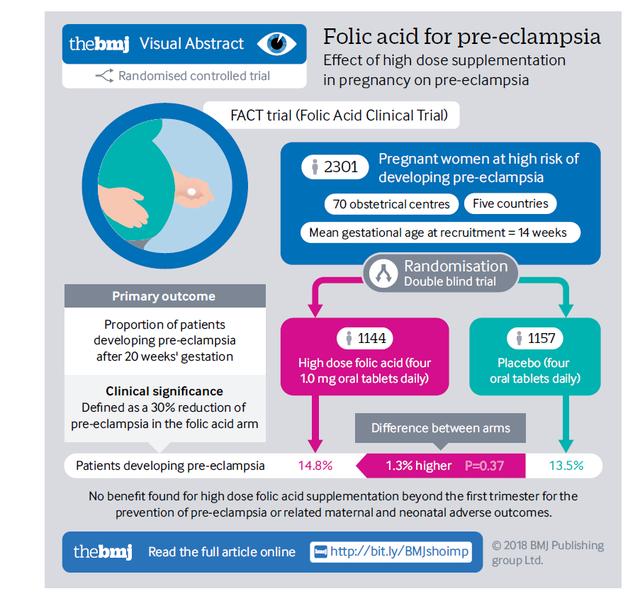"Doctor, my folate metabolism test result has come back as TT type positive. Could this affect my baby?"
As part of the journey to prepare for a baby, expectant mothers are always keen to provide the most comprehensive nutritional support for their future child. Folate, a crucial B-vitamin, is known for its role in preventing neural tube defects and other congenital abnormalities. However, not all forms of folate are absorbed with the same efficiency by the body. In this discussion, we'll explore how variations in the MTHFR gene can affect folate metabolism and what personalized folate supplementation strategies are available for those planning a pregnancy.

Understanding Folate Metabolism
Let's begin by understanding the metabolic pathway of folate. The folate commonly consumed is synthetic folic acid, which the body must convert into the endogenous form, 6S-5-methyltetrahydrofolate, for absorption.

MTHFR (5,10-methylenetetrahydrofolate reductase) is a pivotal enzyme in the folate metabolism pathway, facilitating the conversion of folic acid into 6S-5-methyltetrahydrofolate, a process essential for cell growth and DNA synthesis. The C677T variant of the MTHFR gene, particularly in the homozygous TT form, diminishes the enzyme's activity, leading to a reduced capacity for folate metabolism. This can result in suboptimal folate levels and elevated homocysteine levels, increasing the risk of certain birth defects.
Decreased Enzyme Activity: The C677T mutation in the MTHFR gene alters the nucleotide from C to T, changing the 222nd amino acid in the polypeptide chain from alanine to valine. This modification significantly reduces MTHFR enzyme activity. Heterozygotes (CT type) exhibit 65% of the enzyme activity of the wild-type CC, while homozygous mutants (TT type) display only 30%.
Folate Metabolic Disorders: The reduced activity of the MTHFR enzyme limits the production of 6S-5-methyltetrahydrofolate (L-5-MTHF), impacting DNA methylation and synthesis. This can impede cell division and embryonic development.
Elevated Homocysteine Levels: As MTHFR is responsible for converting homocysteine to methionine, decreased enzyme activity results in increased homocysteine levels, associated with hyperhomocysteinemia.
MTHFR Polymorphism and Birth Defects
Studies have shown that mothers with the MTHFR TT genotype who have inadequate folate intake face increased risks for their babies, including:
- A 1.2 times higher risk of congenital heart disease compared to mothers with the CC genotype.
- A 2 times higher risk of neural tube defects.
- A 2.6 times higher risk of Down syndrome.
- A 5.9 times higher risk of cleft lip and palate for mothers with the MTHFR TT genotype who do not take folic acid before pregnancy.

MTHFR Mutations and Birth Defects
Understanding the desires to provide the best possible start for their baby, expectant mothers may feel concerned about the challenges in folate metabolism presented by the MTHFR TT genotype. Rest assured, modern medical advancements have provided solutions.
Personalized Folate Supplementation: Naturalization Folate
Given that synthetic folic acid must be converted into 6S-5-methyltetrahydrofolate for absorption, directly supplementing with 6S-5-methyltetrahydrofolate (active folate) can effectively bypass the limitations imposed by MTHFR enzyme variations.
During the prenatal period, it's crucial to provide the purest and safest care for the baby. Among the various forms of active folate, naturalization folate stands out for its safety. It is produced without harmful substances like formaldehyde and p-toluenesulfonic acid and strictly control the content of harmful impurities like JK12A and 5-methyltetrahydrofolate through patented technology, ensuring a virtually non-toxic level of safety. This allows you to enjoy the health benefits of folate without concerns.
Embrace naturalization folate as a caring companion during your prenatal journey. It will provide robust folate support for you and your baby in the purest and safest form, joining you in anticipating the arrival of new life. May this process be filled with joy and peace.

Naturalization Folate Certification
References:
1.Lian Zenglin, Liu Kang, Gu Jinhua, Cheng Yongzhi, et al. Biological characteristics and applications of folate and 5-methyltetrahydrofolate. Food Additives in China, 2022, Issue 2.Pietrzik K, Bailey L, Shane B. Folic Acid and L-5-Methyltetrahydrofolate Comparison of Clinical Pharmacokinetics and Pharmacodynamics. Clin Pharmacokinet. 2010;49(8):535-548.
3.Willems FF, Boers GHJ, Blom HJ, Aengevaeren WRM, Verheugt FWA. Pharmacokinetic study on the utilisation of 5methyltetrahydrofolate and folic acid in patients with coronary artery disease. Br J Pharmacol. 2004;141(5):825-830.
4.Bailey SW, Ayling JE. The extremely slow and variable activity of dihydrofolate reductase in human liver and its implications for high folic acid intake. Proc Natl Acad Sci U S A. 2009;106(36):15424-15429.
5.Wright AJA, Dainty JR, Finglas PM. Folic acid metabolism in human subjects revisited: potential implications for proposed mandatory folic acid fortification in the UK. Br J Nutr. 2007;98(6):667-675.
6. Scaglione F, Panzavolta G. Folate, folic acid and 5-methyltetrahydrofolate are not the same thing. Xenobiotica. 2014;44(5):480–488. doi:10.3109/00498254.2013.845705.

 Español
Español Português
Português  русский
русский  Français
Français  日本語
日本語  Deutsch
Deutsch  tiếng Việt
tiếng Việt  Italiano
Italiano  Nederlands
Nederlands  ภาษาไทย
ภาษาไทย  Polski
Polski  한국어
한국어  Svenska
Svenska  magyar
magyar  Malay
Malay  বাংলা ভাষার
বাংলা ভাষার  Dansk
Dansk  Suomi
Suomi  हिन्दी
हिन्दी  Pilipino
Pilipino  Türkçe
Türkçe  Gaeilge
Gaeilge  العربية
العربية  Indonesia
Indonesia  Norsk
Norsk  تمل
تمل  český
český  ελληνικά
ελληνικά  український
український  Javanese
Javanese  فارسی
فارسی  தமிழ்
தமிழ்  తెలుగు
తెలుగు  नेपाली
नेपाली  Burmese
Burmese  български
български  ລາວ
ລາວ  Latine
Latine  Қазақша
Қазақша  Euskal
Euskal  Azərbaycan
Azərbaycan  Slovenský jazyk
Slovenský jazyk  Македонски
Македонски  Lietuvos
Lietuvos  Eesti Keel
Eesti Keel  Română
Română  Slovenski
Slovenski  मराठी
मराठी  Srpski језик
Srpski језик 








 Online Service
Online Service